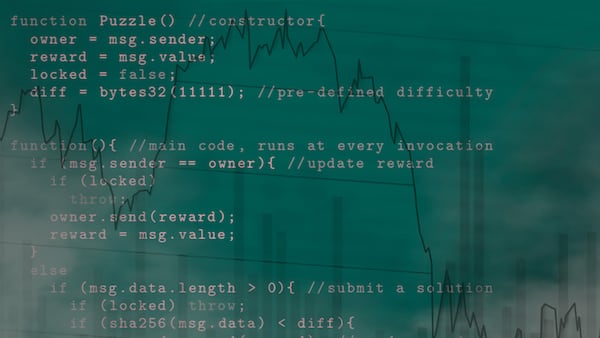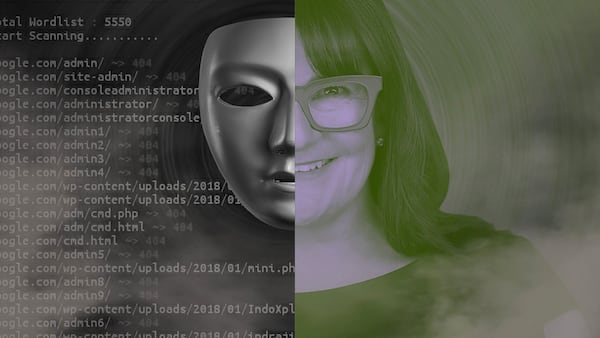- The European Commission’s new strategy makes sure virtual worlds are interoperable, according to draft report obtained by DL News.
- EU embraces blockchain-powered metaverse as a source of economic growth and jobs but wants consumer protections in place.
- Commission plans to adopt strategy report Tuesday in latest regulatory move on crypto.
The European Union plans to make sure Mark Zuckerberg’s Meta, or any other big tech player, cannot rule the metaverse.
European officials want to preserve the trade bloc’s global competitiveness by ensuring the nascent sector “will not be dominated by a select few,” according to a draft of a strategy report obtained by DL News.
Transferring identity and assets
On Tuesday, the European Commission is expected to adopt the report, entitled An EU Initiative on Web 4.0 and Virtual Worlds: A Head Start in the Next Technological Transition.
The commission, which forms part of the bloc’s executive arm, wants to ensure that different metaverse platforms are interoperable. That way users will be able to transfer their identity, assets, and data from one virtual world to another.
NOW READ: Elizabeth Warren’s anti-crypto crusade may bolster Wall Street’s land grab in Bitcoin market
This approach would make it harder for a single platform to dominate others. The policy would also prevent metaverse providers from becoming “future gatekeepers of virtual worlds by exploiting network effects,” the report says.
There’s a lot at stake. The commission’s report said the metaverse’s virtual worlds may generate €800 billion in global economic activity by 2030, and open up 860,000 more jobs in Europe by 2025.
Here comes Web 4.0
That the EU would weigh in on the metaverse with a strategy paper is no surprise. For years, Brussels has taken a hard line on protecting consumers’ data and privacy, much to the chagrin of Google, Twitter, and Facebook, the social media platform owned by Meta. For them, consumer protection regulation means more costs and red tape.
While imposing boundaries on a space that is theoretically infinite may raise an eyebrow, what’s truly surprising about the report is the EU’s embrace of the metaverse’s inevitable role in work and life.
The commission defines the advent of virtual worlds powered by blockchain technology as Web 4.0 — “the expected fourth generation of the World Wide Web.”
NOW READ: European Union launches institution to build blockchain infrastructure across continent
Moreover, the report describes a concoction of blockchain, artificial intelligence, connected devices and immersive worlds that creates “truly intuitive, immersive experiences, seamlessly blending the physical and digital worlds.”
The authors don’t stop there. They envision metaverse applications that can be reconciled with the EU’s principles of respecting workers’ and consumers’ rights.
Even though the tone evokes the euphoria of the metaverse’s early days in 2021, the commission’s report comes as doubts mount about the mass market viability of blockchain-supported virtual reality.
‘It’s less ambitious and less concrete, and bold than I was expecting.’
— Gianluigi Vona
Zuckerberg changed the name of Facebook’s corporate parent to Meta two years ago only to watch as his initiative lost billions of dollars over its big bet on metaverse. In the meantime, metaverse, especially Meta’s development, has been dismissed as a possible fad.
And while the EU’s report may be a bright spot, experts fret the report lacks sufficient details to get a handle on how the bloc is meant to achieve its ambitious goals.
Sandboxes and experts
“Since it is a good opportunity for Europe to attract investment in businesses, I was expecting there would be something more to actually bring that in,” Gianluigi Vona, web3 consultant at Acumen Public Affairs, told DL News about the report.
“It’s less ambitious and less concrete, and bold than I was expecting,” said Vona, who is also an editor of the Metaverse EU policy research initiative. “It is a first step, the first building block. But at the same time it doesn’t give much information.”
There are some details. The commission will kick off an “expert group” or advisory panel for the bloc’s 27 member states to share best practices in the sector. It also wants to set up regulatory sandboxes for companies to experiment with the new technologies and business opportunities in collaboration with officials in the second half of 2024.
NOW READ: DeFi girds for onerous smart contract rules as EU data bill moves forward
A new partnership for market participants in member states will also be set up to invest in developing new virtual world technologies, like AI, blockchain and cybersecurity.
A consortium made up of member states to develop metaverse solutions may also become a reality. A similar body was recently set up by the EU to develop a bloc-wide blockchain infrastructure. A political entity like that would allow countries to develop and deploy virtual applications.
DAOs, legal entities with no central authority that often rely on code for governance, caught lawmakers’ attention.
Economic barriers
The commission is looking to promote DAOs with a study “to analyse and promote” their business opportunities” and “identify legal, administrative and economic barriers that prevent their uptake,” the commission’s report says.
Vona hoped that the EU would commit to more concrete steps and funding initiatives to achieve Europe’s ambitious metaverse goals. He wanted to see “actual commitment from Europe to put the money where their mouth is” with more concrete steps and designated funding.
Existing funding programmes like Creative Europe and Digital Europe would support professionals, but exact figures have not been shared.
No legislation yet
The European Parliament published a study about potential risks that could come with growing use of virtual worlds last year. Those are data protection and cybersecurity issues, as well as harmful or illegal behaviour. Vona noted that the commission doesn’t address those issues in its latest strategy.
There is no legislation for the metaverse on the horizon yet. For now, the EU is relying on existing frameworks, on commercial data, data protection, digital identity and artificial intelligence to carry metaverse development onward.
“Existing rules are already a good base. There’s no need for a new framework on metaverse yet. It’s not what the industry needs,” Vona said.
Have a tip about EU crypto policy? Contact the author at inbar@dlnews.com.



